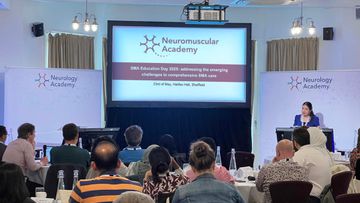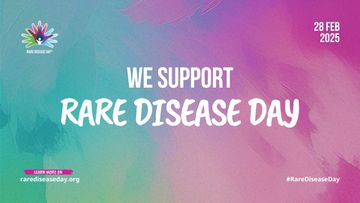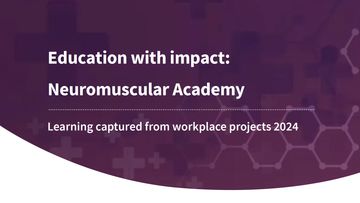Reviewing our first Myasthenia Gravis MasterClass
Event reportsOn 1st and 2nd March, we held our first education in myasthenia gravis (MG). The 1.5-day residential MasterClass was developed as part of Neuromuscular Academy and led by Dr Channa Hewamadduma.
24 in-person delegates and 30 virtual attendees gathered together to learn more about MG, its diagnosis and the pitfalls thereof, treatment including novel therapies and prospective treatments, and management including a specific session on management in adolescence and during pregnancy.
'This is probably the most beneficial education meeting I have attended, in terms of content, excellence of expertise of speakers and relevance to my clinical practice. The networking opportunities have also been very useful. Very high quality of speakers and presentations.'
Delegate from MG MasterClass
The room was abuzz with chatter and informal sharing and learning, whilst the course itself received some of the best feedback statistics we have ever had from a first time course. In evaluations, 97% of respondents said they were likely or highly likely to modify their practice as a result of the education, and 100% rated the education quality as good or excellent.
Speakers received consistently high feedback, all being rated between 4.5 and 4.9 out of 5, and 97% of delegates were likely or highly likely to recommend the course to a colleague.

'This course will increase my confidence and I can work knowing more about accepted practice/decision-making considerations of experts. Including the people attending remotely, this seemed to work well re questions/comments.'
Delegate from MG MasterClass

Lead Faculty Channa, a previous delegate and Faculty member for our spinal muscular atrophy (SMA) MasterClass, approached Neurology Academy to develop this course specifically to help address the significant variance in access to treatment, support and wider services for those living with MG. The rapidly changing treatment landscape of MG means that, whilst providing novel opportunities for people with MG, those inequalities may widen further. Through education, we can begin to raise the level of understanding around MG and create a more standard approach to diagnosis, treatment and management to reduce that unwarranted variance.
Related articles

Outstanding feedback for SMA Education Day 2025

Rare Disease Day 2025

Spinal muscular atrophy: education with impact
Raising awareness, improving outcomes
Neuromuscular Academy is the first bespoke course for healthcare professionals to receive expert training in neuromuscular conditions like spinal muscular atrophy.